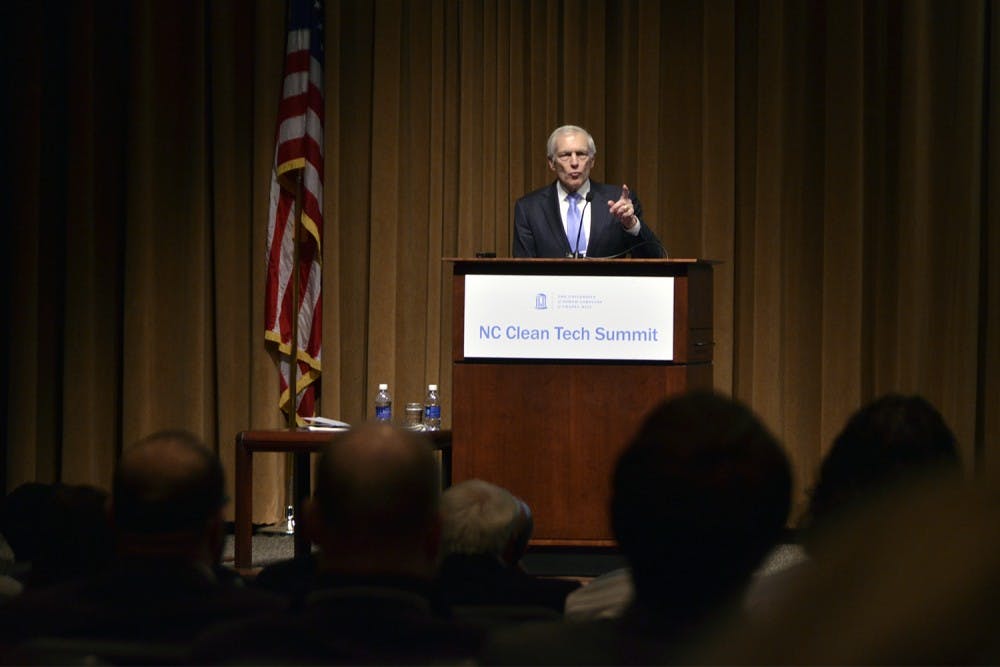The N.C. Clean Tech Summit’s keynote speaker, retired Gen. Wesley Clark, connected the country’s energy plan with its national security plan.
Clark said the top five long-term challenges for the U.S. are terrorism, financial stability, climate change, the rise of China and cybersecurity.
“What’s common in all of these problems is they take money, and we’re short on money,” he said. “Those of you entrepreneurs and those in the military understand this very well.”
Clark spoke about the threat of ISIS, and the need to attack its recruiting rhetoric rather than put troops on the ground.
“There’s no technology fix for this — it’s not going to be solved with a better bomb,” he said.
Clark said America’s greatest concern was the lack of a national security strategy. He said in the Cold War period, there was a clear enemy and a clear response. After 9/11, Clark said Americans gained a greater understanding of external threats to their security.
“What I learned when I taught economics at West Point was you can’t have guns and butter,” Clark said. “But in the first decade of this century, we believed we could have guns and butter and sugar. We got ourselves into a mess, and the question is: What is the strategy?”
Clark eventually tied things back to clean energy, saying he wants to see the national government create a clean energy infrastructure in the same way the country created the military industrial complex.




